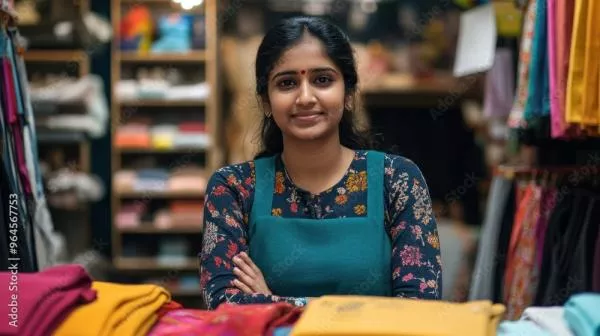From selling vegetables in the market to running a small tailoring business from home, millions of Indian women are building their livelihoods on their own terms. But being self-employed or a street vendor often comes with daily challenges- harassment, eviction threats, unfair fines, and more.
The good news? The law has your back. Whether you're running a roadside stall, a food cart, or working from home, here's what you need to know about your legal rights and protections.
Who Is a Street Vendor or Self-Employed Woman?
You are covered under the law if you are:
- Selling fruits, vegetables, clothes, or snacks on streets or pavements.
- Running a tea stall or food cart.
- Working as a home-based tailor, beautician, or pickle/papad maker.
- Offering local services like ironing clothes, cobbling, or recycling work.
If you earn money by providing goods or services directly to customers, and you do it independently- you're self-employed, and law protects you.
Your Right to Sell: The Street Vendors Act, 2014
Yes, there's a full law just for street vendors! It's called the Street Vendors (Protection of Livelihood and Regulation of Street Vending) Act, 2014, and it says:
- You have the right to sell in public places (markets, footpaths, etc.), as long as it's not restricted zone.
- Evictions without notice are illegal. Authorities must follow a process and give you time.
- You can't be fined or harassed by police or municipal officers of you have a vendor certificate.
Tip: Visit your local municipal office and register yourself to get a Vendor Certificate or ID Card. This gives you legal recognition and protection.
Harassment? You Can Complain
Whether it's local officials, police, or passerby- nobody has the right to threaten, abuse, or remove you without legal cause.
Here's what you can do:
- File a complaint at the local police station.
- Call helpline like 181 (Women's Helpline)
- Reach out to Vendors' Associations or local NGOs for support and guidance.
Protection from Sexual Harassment
Women in public spaces- especially self-employed women and vendors- may face inappropriate comments, touching, or worse. This is not just wrong, it's illegal.
You are protected under the Sexual Harassment of Women at Workplace (Prevention, Prohibition and Redressal) Act, 2013, also known as the Posh Act.
Even if you're not in a traditional office, courts have recognized that "the street is your workplace" if you earn a living there.
Here's how you're protected:
- Sexual Harassment- verbal, physical, or visual- is a punishable offence under the POSH Act and the Indian Penal Code (IPC).
- Local Complaints Committees (LCCs) have been set up at the district level to receive complaints from unorganised sector workers like you.
Visit your District Collector's office or call 181 to find out where your LCC is located. NGOs working on women's rights can also help you file a complaint.
You Also Have the Right to Social Security
As a self-employed woman, you're eligible for:
- Health insurance under schemes like Ayushman Bharat
- Old-age pension and maternity benefits, if registered with state social welfare boards

Comments